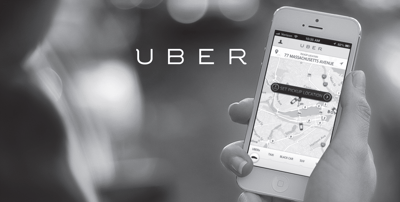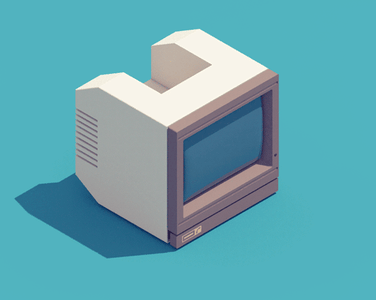(Massive hat tip to Clay Shirky here)
Software is eating the world. The world’s largest taxi company owns no cars. The largest provider of overnight accommodation owns no hotels. In 2017, two companies took a whopping $120 billion in advertising spend, despite not owning a printing press or TV network between them.
All these companies were founded as modest startups in the last 20 years. Many of the business’s they’re displacing have been around for over a century. 10-year-old Uber has the same $60 billion valuation as 100-year-old General Motors.
How did this happen? It seems counter intuitive that a company like Uber, which only owns software, is worth as much as GM, which owns hundreds of huge factories and plants.
How do small software startups founded with less than five employees ‘steal’ the markets from billion dollar incumbents? Like all counter intuitive truths, the answer lies in what we think we know… and what’s actually going on.
Humanity is still 95% disorganized
We forget that the world is mostly disorganized and random. For 500 years, every generation in the Western world has seen an increase in knowledge and learning during their lifetime. Every generation has used the knowledge and learning of the previous one to create technology that brings order to our lives.
And every generation thinks their innovations are the final few. The job is done; now we have order.
With even a little effort we can see this is not true. Yet our immediate thoughts in most industry is ‘job almost done, pending some small tweaks’. Yet, we think this way because of a psychological concept called availability bias. We are drawn to trust information that’s easily recalled (i.e. available) over better information that is harder to recall.
So, when we consider “How well does the traditional taxi service work”, it’s easier to recall what did occur in the last few taxi rides rather than what didn’t. It’s difficult to imagine tracking a taxi coming to pick you up if you’ve never done that. That is, until you take your first Uber and that becomes the new norm of organized travel.
We are way more disorganized than we can imagine. Huge gains are available when software is created to bring order to even the smallest elements of our lives. Uber is a $60-billion-dollar proof of that.
Uber’s organizing of information in the taxi market is worth $60B

Before Uber, to get a ride, I had to first choose a taxi company. I called them and explained where I was and where I was going. The taxi company chose an anonymous driver for me and dispatched that driver to their anonymous passenger.
Then, dead air until the taxi arrives 5 to 15 minutes later. I had to repeat to the driver where I wanted to go. I only found out what the fare would be at the end of the journey. I then had to settle the payment before I could leave the cab. It was almost impossible to report a poor driver or pass on praise for a great driver.
I was a regular taxi user in a large city, so I repeated that process over a hundred times a year with the same taxi company.
With Uber, I get an estimate of the fare. I get to see the name and picture of the driver as soon as the booking is made. The driver gets to select my job. The driver already knows where I’m going. We’re in this together because we both have reputations on the system to maintain.
Software eats the world because it can organize large industries and markets that we never realized were disorganized.
This is the story of technology. We were disorganized and we didn’t know it. New tech came along and organized us. But there’s also a human side to the story. It’s the human’s response to technology and overcoming the obstacles that allowed Uber to steal the industry.
The technology is hard but not that hard

Uber’s technology is not their own. The Internet they communicate over, the smartphones they run on were all available to the taxi companies. So, why didn’t they write the Uber app?
They already had the customers turning up daily. The core booking app could be written for less the $1M. A rough MVP (Minimum Viable Product) could be out for less than $100k.
It’s because, like us, they saw the visible order they had created and not the invisible disorder they tolerated.
Just because you don’t see disorder, doesn’t mean it’s not there.
So, how did we accommodate the information gap and disorder before new tech cleaned it up? We created ceremony and institutions.
Before Uber (and smartphones, in particular) we had a ceremony where we phoned a taxi call center and verbally explained who we are, where we are and where we wanted to go. That call center passed this information onto one of a pool of taxis they have on hand.
To maintain ceremony, we build institutions. Taxi companies are an institution. A taxi company must have a pool of cars, a pool of drivers and a call center.
For non-tech incumbents like taxi companies, creating technology is always a hard task. What makes it nearly impossible is that there’s a compelling desire to take ceremony and institutions with us into the new tech, regardless of the need. It’s the hill too far. It’s why the taxi companies have ceded their industry to Uber… and the automobile companies the same.
People are the problem, again☺
Why is this so hard?
The first problem is that once people become accustomed to a particular ceremony, we develop trust in it.
It’s difficult to change. Any new technology that removes ceremony has to be significantly more beneficial for the change to happen. The best tech companies directly address this in their design by building in faux ceremony to keep it familiar. Google’s material design leverages our deep familiarity with writing on paper.
The second problem is even harder because institutions are sentient. While changing a ceremony is uncomfortable to people, removing an institution means its death. The institution will fight for its life.
Uber and AirBnb have beaten impossible odds to be adopted by customers as quickly as they have. Yet their biggest hurdles to date have been beating off legal challenges from the institutions they are killing off. It’s a life and death struggle.
It’s also not black and white. Uber does away with the need for taxi companies. But the labor protections provided by working in the company are important. Some institutions are worth saving.
What can you do to break ceremony?
Most industries are no different from taxi companies and hotel chains, in that there are ceremonies which exist that no longer add value… Institutions that don’t pay their way.
Innovation will be led by companies that look to technology to dispense ceremony and tear down institutions. - Click to Tweet! ![]()
We’ve been caught using technology to speed up what we do. If we don’t, someone will steal our marketplace.
So, what can you do? There are some obvious examples…
Legally documenting an IT project is a redundant ceremony. I would argue that it’s been redundant from the very beginning. Billions of emails later, can you remember anyone that successfully enforced the legal disclaimers that pollute all our messages?
Getting rid of the documentation ceremony can save precious time and energy.
There are some less obvious examples. In your marketplace, is there any need for your main business at all? Do you have smaller projects that are faring well? Do you have a team to work on little experimental projects, like Google does?
Tearing up ceremony and institutions will be the focus of Lancom for this year. In the interim, here’s what I am reading to get ready:
⤷ A final call and some useful resources to check
This post is heavily influenced by the work of Clay Shirky, who has been writing about this for more than ten years. I suggest you read and watch as much as you can. You could argue that tearing down ceremony and institution is the business end of Disruptive innovation theory. Clay Christiansen and Tony Ulwick are also great sources of truth.






